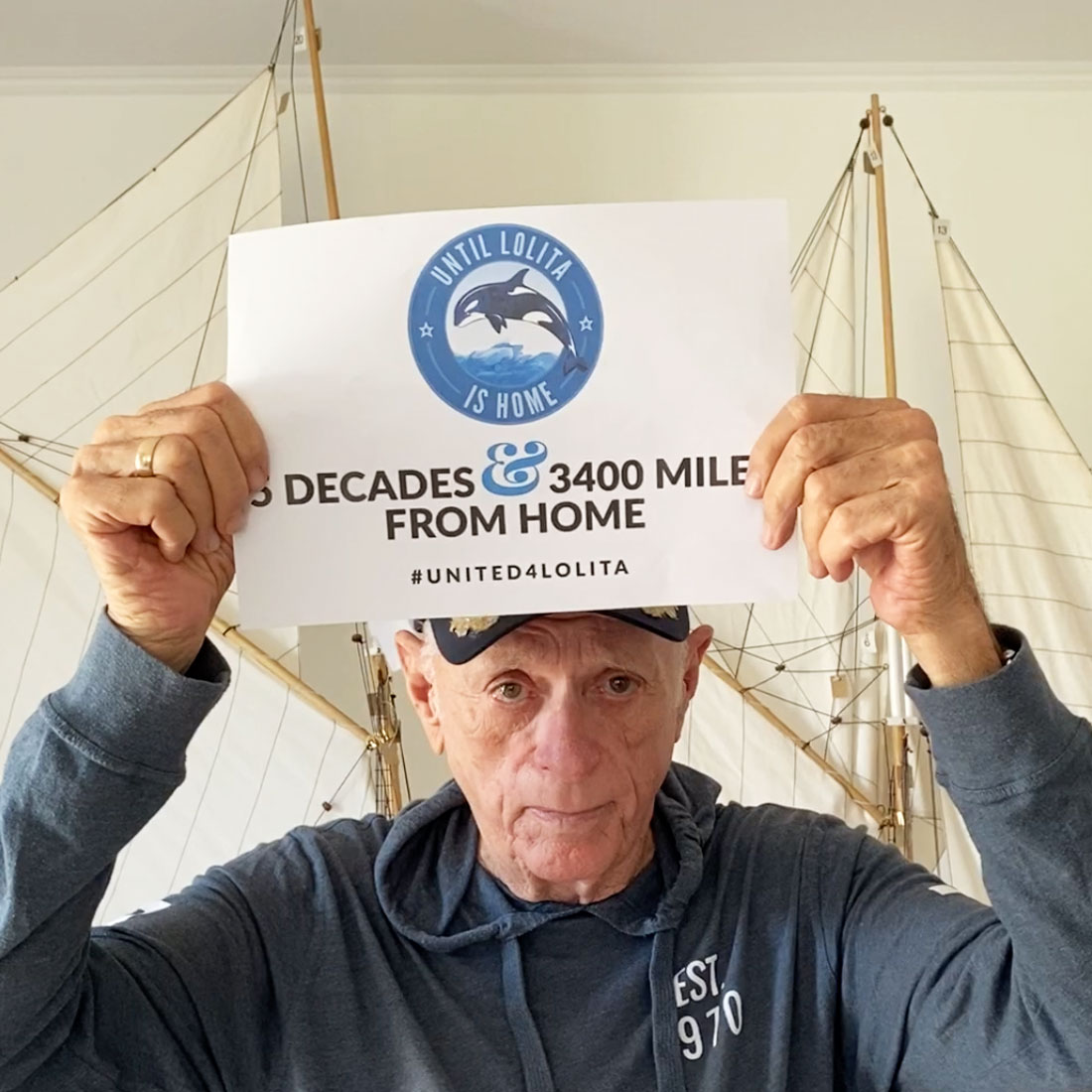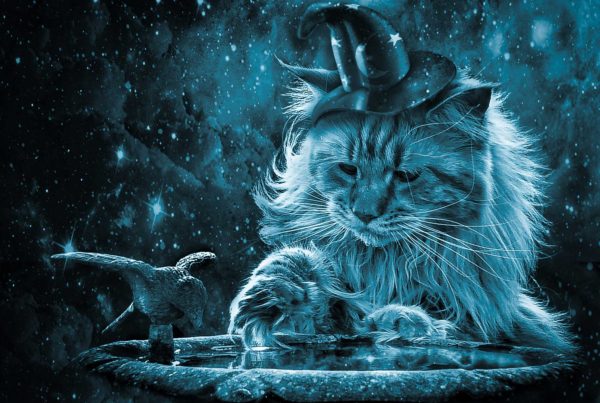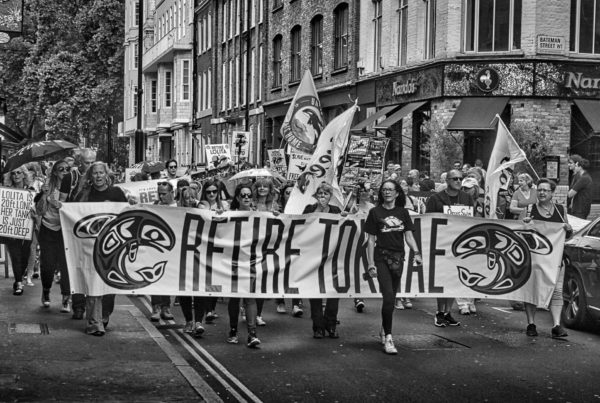August 8th, 2020 marked the 50th anniversary of Lolita’s capture. Today, she is still held in the smallest orca tank in North America.
Credit: Arthus Boucard
For my role as vice president for Until Lolita is Home, I worked on a fifty-day campaign to commemorate the date, spending a considerable amount of time gathering information, creating fifty graphics, and sharing them on social media.
I designed a sign which was available for download so that people could use it to raise awareness, created a tweet sheet and added my colleague’s, James Glover’s tweets, and worked with Victor Loegler, a talented young man to create the campaign’s introductory video. Reaching out to the community, I collected video clips from people saying ‘Until Lolita is home’ in their native language, they were used to emphasize our primary goal, which is ‘United for Lolita.’
Our petition was featured on CTV News.
You can view my video below which includes Dan Richardson, patron of the Born Free Foundation, Howard Garrett, founder of Orca Network, Dolphin Project’s Ric & Helene O’Barry, and Margaux Dodds, director of Marine Connection.
Lolita (first called Tokitae) was captured on August 8, 1970, in Penn Cove, Whidbey Island.

She was one of seven young whales sold to marine parks around the world from this roundup of over 80 orcas conducted by Ted Griffin and Don Goldsberry, partners in a capture operation known as Namu, Inc. Using speedboats and releasing explosives in the water, they forced the orcas into Penn Cove. Babies were separated from their mothers. The orca mothers would not leave their children, piercing, screaming vocalizations were heard incessantly both above and below water.
Five orcas, including four calves, drowned during this capture, they had their bellies slit, were filled with rocks, and weighted with chains and anchors to keep their deaths from coming to the attention of the public. In mid-November, a trawler dragged the bodies of the drowned infants into its net. The captain of the fishing boat deposited the dead baby whales on a beach in front of a Seattle newspaper reporter, and the story was immediately told to the world. Six years later this discovery played a major role in a court decision that banned Sea World from ever capturing another killer whale in Washington State.
A summary of “Tokitae remembers her home and family” by Howard Garrett
Dr Jesse White chose her because he said, she was “so courageous, and yet so gentle.” He named her Tokitae (TOE-Key-Tie) a coastal Salish greeting meaning “nice day, pretty colors.” She truly is unfathomably courageous and gentle. She waits, alone and confined in concrete, all day and all night except for shows and brief playtimes. How does she persevere?
How does Toki maintain her endurance, her gracious compliance, her sanity? All the other 50+ orcas delivered to theme parks from the Salish Sea before 1976 had died by 1987. Hugo effectively committed suicide in the tank with her, yet she is still going strong to this day. Did she learn her patient character and self-control from her mother and family?
Tokitae learned very young to be a member of her family, her culture, and community. That shared self is her experience and isn’t forgotten, even after fifty years captive in a tank in Miami. She still knows who she really is, and how to be a Southern Resident orca.

”Jo Phillips, based in the UK, has put together this deeply moving tribute from people around the world to commemorate today's 50-year anniversary of the August 8, 1970 Penn Cove capture, resulting in Lolita's incarceration at the Miami Seaquarium for half-a-century. Half-a-century... Thank you Jo Phillips for your tireless efforts in support of the campaign.
Sandra PollardAuthor






